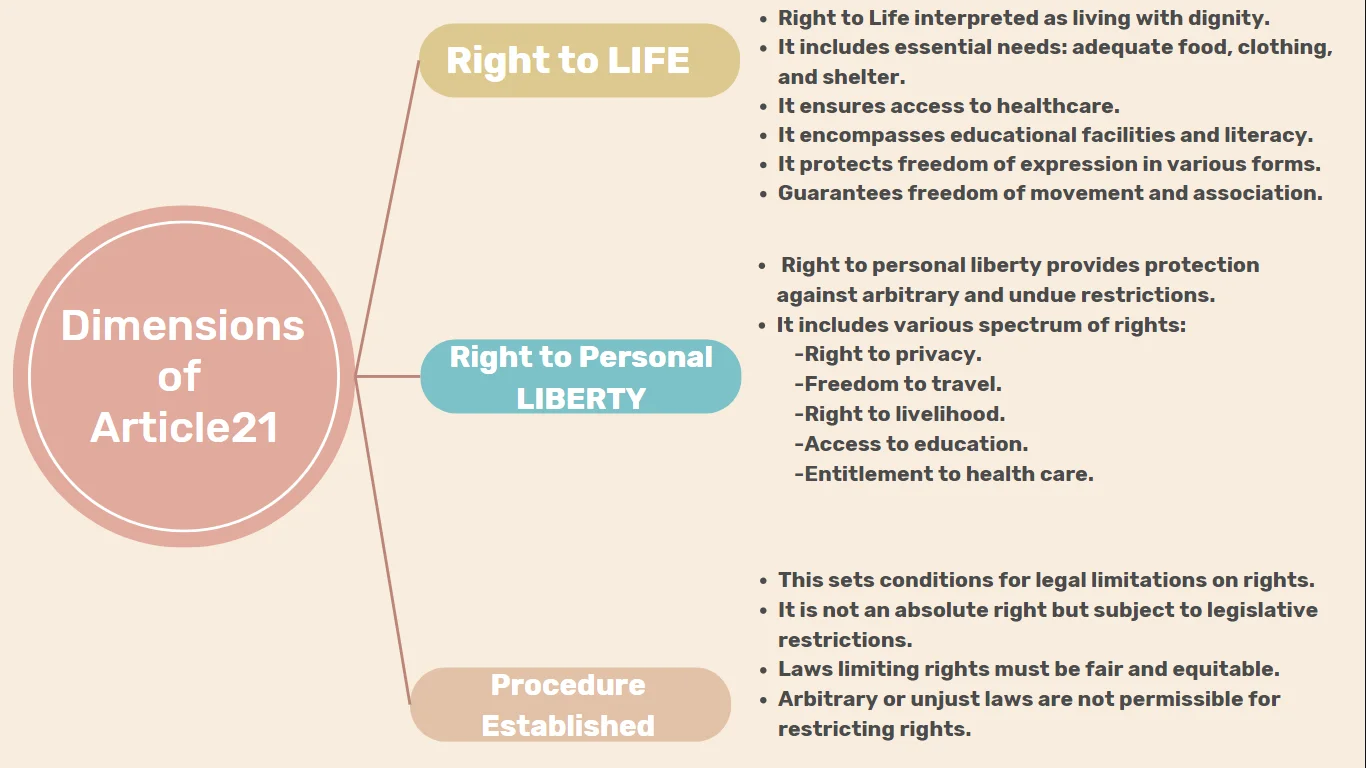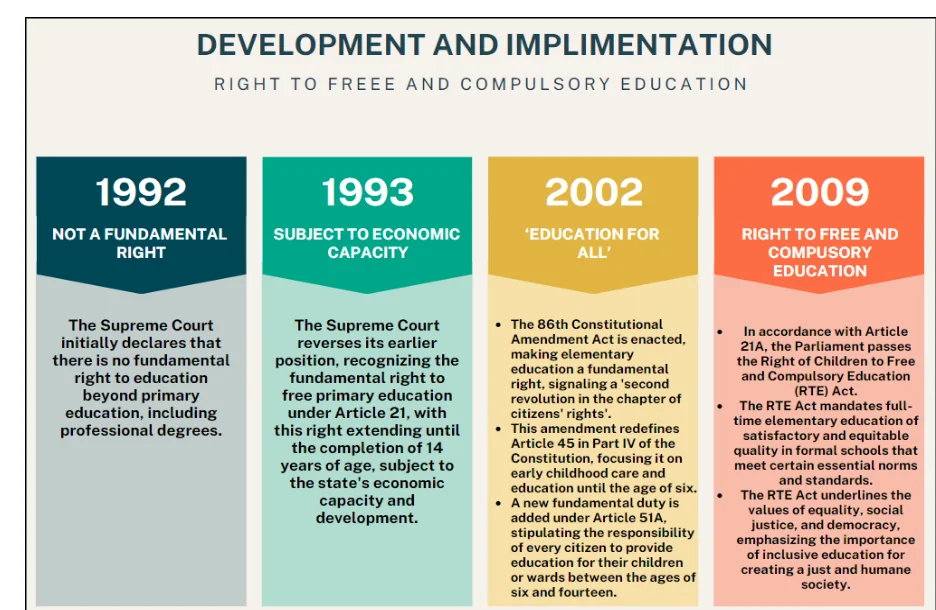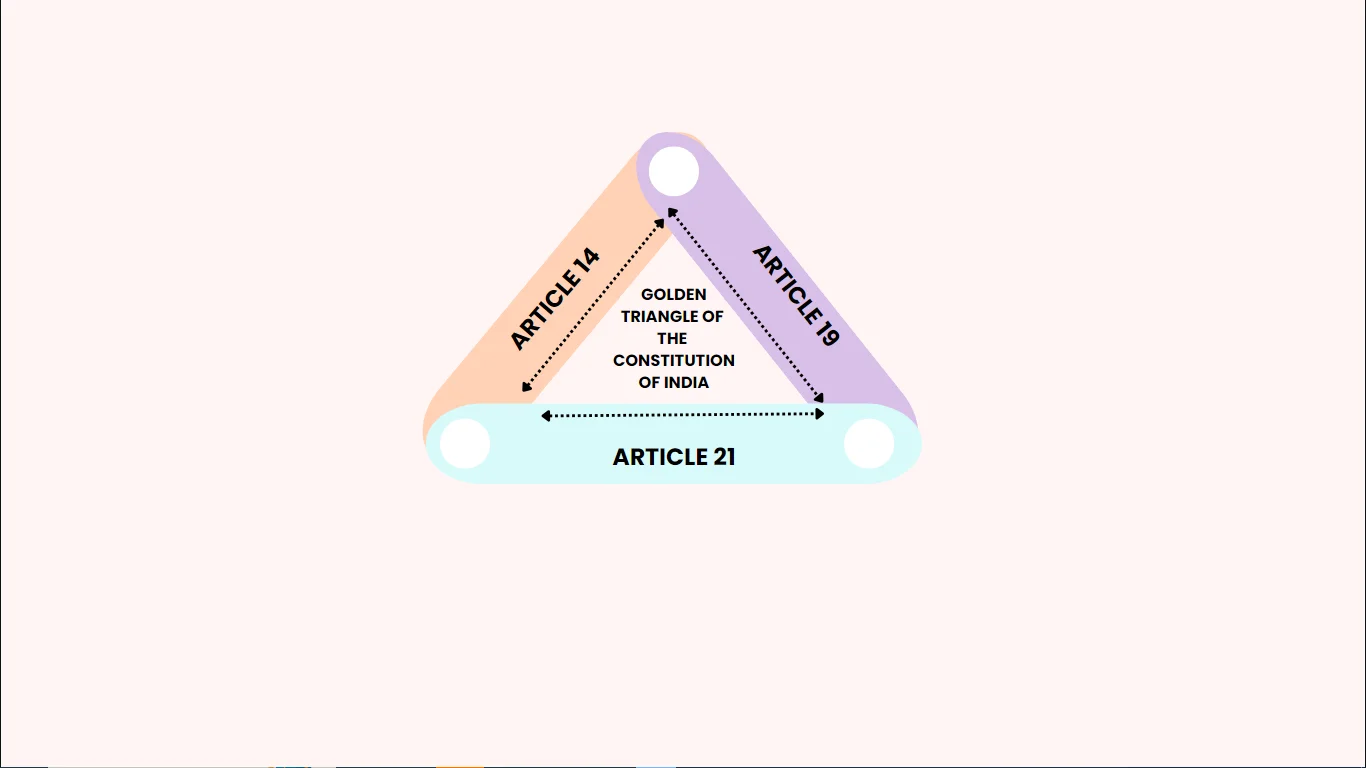Article 21 of the Indian Constitution, safeguarding the right to life and personal liberty, has evolved into a cornerstone of democratic values. Initially interpreted narrowly, landmark judgments have broadened its scope, encompassing rights such as dignity, privacy, and environmental protection. This evolution reflects the dynamic nature of constitutional interpretation, adapting to societal needs and ensuring comprehensive protection for all citizens.
Article 21: Evolution, Scope, and Significance of the Right to Life and Personal Liberty
Article 21: Protection of life and personal liberty.—No person shall be deprived of his life or personal liberty except according to procedure established by law.
- Article 21 is the bedrock of the Indian Constitution. It represents the democratic principle of liberty and life.
- John Locke’s Definition of Liberty: Western Philosopher John Locke, the father of liberalism, defined liberty as ‘the freedom to act according to one’s own will within the bounds of the law’.
- Supreme Court’s Interpretation of Article 21: However, the Supreme Court of India through its judgements has interpreted life as not just living but living with dignity.
- Thus, makes the scope of Article 21 broader than any other Article.
- A.K. Gopalan vs. State of Madras (1950):
- Narrow Interpretation of Article 21: The court held that the right to life and personal liberty could be deprived based on the “procedure established by law” without questioning the fairness or justness of the law.
- The court held that protection under Article 21 is available only against arbitrary executive action and not from arbitrary legislative action.
- Narrow Interpretation of Article 21: The court held that the right to life and personal liberty could be deprived based on the “procedure established by law” without questioning the fairness or justness of the law.
- Maneka Gandhi vs. Union of India (1978): This case marked a turning point in interpreting Article 21.
- Broadening the Scope of Article 21: The Supreme Court declared that the “procedure established by law” must be fair, just, and not arbitrary, effectively reading Article 14 (right to equality) and Article 19 (protection of certain rights regarding freedom of speech, etc.) into Article 21.
- Introduction of Due Process of Law: It introduced the American concept of “due process of law” extending the protection under Article 21 against arbitrary legislative action.
- Due Process of law derives its essence from the Principle of Natural Justice.
- Dynamic and Evolving Provision: This article makes the constitution a living document, as with time, it allows open arms for new changes that are demanded in society.
Enroll now for UPSC Online Course
|
Golden Triangle of the Constitution of India:
|

Evolution of Article 21 through Judicial Cases
- Dynamic and Progressive Interpretation: The evolution of Article 21 of the Indian Constitution is a testament to the dynamic and progressive interpretation of the Constitution by the Indian judiciary.
- Broadening the Scope of Article 21: Through various landmark cases, the scope of Article 21 has been significantly broadened beyond the mere right to life and personal liberty.
Article 21 Comprises Following Rights
- Right to live with human dignity –Francis Coralie Mullin vs. The Administrator, Union Territory of Delhi (1981)
- Right to a pollution-free, healthy environment– M.C. Mehta vs. Union of India (1987) or Oleum Gas Leak Case
- Right to livelihood- Olga Tellis vs. Bombay Municipal Corporation (1985)
- Right to Privacy- Justice K.S. Puttaswamy (Retd.) vs. Union of India (2017)
- Right to shelter- Uttar Pradesh Avas Evam Vikas Parishad v/s Friends Co-op Housing Society, 1996
- Right to free education up to 14 years of age –Unni Krishna, JP v/s State of Andhra Pradesh,1993
- Right to access justice –Swapanil Tripathi Case (2018)
- Right to free legal aid
- Right to speedy trial –Hussain v/s Union of India,2017
- Right to a fair trial- Police Commissioner, Delhi v/s Registrar, Delhi High Court,1997
- Right against solitary confinement
- Right against handcuffing
- Right against delayed execution
- Right against inhuman treatment
- Right against custodial harassment
- Right against bar fetters
- Right against public hanging
- Right of prisoners to have necessities of life
- Right of appeal from a judgment of conviction
- Right against bonded labour- Bandhua Mukti Morcha vs. Union of India (1984):
- Right to timely medical treatment in government hospital
- Right to emergency medical aid
- Right to travel abroad
- Right not to be driven out of a state
- Right to social and economic justice and empowerment
- Right to family pension
- Right to appropriate life insurance policy
- Right to opportunity
- Right to internet- Faheema Shirin vs State of Kerala, 2019
- Right to reputation
- Right to information
- Right to freedom from noise pollution
- Right to sleep
- Right to sustainable development
- Right to road in hilly areas
- Right of women to be treated with dignity and decency
- Right to a safe work environment- Vishaka and Others vs. State of Rajasthan (1997):
- Right to freedom of sexual orientation –Navtej Singh Johar vs. Union of India (2018)
Other important cases to refer
- Decriminalisation of Adultery: In Joseph Shine v/s Union of India (2018), the Supreme Court ruled Section 497 of the IPC unconstitutional for violating Article 21 , asserting that-
- Impact on Women’s Equality and Dignity: It undermines women’s equality and dignity by perpetuating gender stereotypes and implying women’s subordination through the need for a husband’s consent.

- Preventive Detention: In Mohd Ibrahim Mohd Sasin v/s State of Maharashtra (1987), It was held that
- Issuance of Preventive Detention Order: The state government issued a preventive detention order following the immediate withdrawal of a prior order based on the Advisory Board’s recommendations.
- Government’s Failure to Justify Decision: Despite being granted two delays, the government could not provide a legal justification for its decision in court.
- Such action was found to infringe upon the constitutional rights protected by Articles 21 and 22.
- Preventive Detention under COFEPOSA: Preventive detention has another dimension wherein if someone is held under the Conservation of Foreign Exchange and Prevention of Smuggling Activities Act, 1974, it is mandatory to notify the detainee’s family members about the detention order and the location where they are being detained.
Article 21A: Right to education—The State shall provide free and compulsory education to all children of six to fourteen years in such a manner as the State may, by law, determine.
- Article 21A: It mandates the state to provide free and compulsory education to all children aged six to fourteen years.
- Therefore, this clause grants the status of a Fundamental Right solely to primary education, excluding higher or professional education.
- This article was added to the Constitution of India through the 86th Amendment in 2002.

Enroll now for UPSC Online Course
| Must Read | |
| Current Affairs | Editorial Analysis |
| Upsc Notes | Upsc Blogs |
| NCERT Notes | Free Main Answer Writing |
Conclusion
The expansive interpretation of Article 21 underscores its significance in protecting a wide array of fundamental rights beyond mere existence.
- While the judicial advancements highlight the progressive nature of the Constitution, challenges remain in translating these legal safeguards into tangible outcomes.
- Bridging this gap is crucial for ensuring that the right to life, in all its dimensions, is effectively realized for every individual.
Sign up for the PWOnlyIAS Online Course by Physics Wallah and start your journey to IAS success today!
| Related Articles | |
| ENVIRONMENT | Noise Pollution: Protecting Health and Harmony through Pollution Control |
| Supreme Court | Constitution: A Living Document |

 GS Foundation
GS Foundation Optional Course
Optional Course Combo Courses
Combo Courses Degree Program
Degree Program











